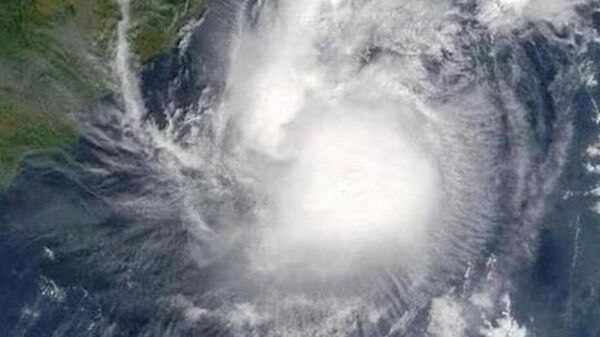
Cyclone Remal to hit West Bengal, Bangladesh shores by May 26 evening: IMD
The Meteorological office has warned of extremely heavy rainfall in the coastal regions of West Bengal, northern Odisha, Mizoram, Tripura, and southern Manipur on May 26-27.
A low-pressure system over the Bay of Bengal will strengthen and reach Bangladesh and nearby West Bengal shores as a severe cyclonic storm by Sunday (May 26) evening, the IMD stated on Thursday.
This is the first cyclone in the Bay of Bengal this pre-monsoon season and will be named Remal, following the naming system for cyclones in the Indian Ocean region.
WML concentrated to Depression over central Bay of Bengal(BoB) at 0530hrs of 24May. Likely to move northeastwards and intensify further into a cyclone over eastcentral BoB by 25 morning. Subsequently, it would move nearly northwards, intensify into a severe cyclone by 25evening. pic.twitter.com/Jibfi6LUu4
— India Meteorological Department (@Indiametdept) May 24, 2024
Heavy rainfall advisory
According to the IMD, light to moderate rainfall at most locations with heavy to extremely heavy rainfall at isolated locations is expected over coastal regions of West Bengal and adjacent districts of northern Odisha on May 26 and 27. Similarly, light to moderate rainfall will occur at most locations with heavy to extremely heavy rainfall at isolated locations over Mizoram, Tripura, and southern Manipur on May 26 and 27.
Here are some key details about Cyclone Remal:
According to the IMD, the cyclone is likely to reach a wind speed of 102 kilometers per hour on Sunday.
A warning of extremely heavy rainfall in the coastal regions of West Bengal, northern Odisha, Mizoram, Tripura, and southern Manipur on May 26-27 has been issued.
Fishermen have been advised to return to the shore and avoid venturing into the Bay of Bengal until May 27.
What should we do when cyclone come?
When a cyclone approaches, it’s crucial to take several precautionary steps to ensure safety and minimize damage. Here are key actions to consider before, during, and after a cyclone:
Before a Cyclone
1. Stay Informed: – Monitor weather updates through reliable sources like the IMD, local news, and weather apps. – Pay attention to cyclone warnings and alerts.
2. Prepare an Emergency Kit: – Stock up on essential supplies: water, non-perishable food, medications, first aid kit, flashlights, batteries, and important documents.
3. Secure Your Home: – Reinforce doors and windows, and secure loose items around your property. – Trim tree branches and secure outdoor furniture to prevent them from becoming projectiles.
4. Plan Evacuation Routes: – Know the nearest shelters and evacuation routes. – Plan how to reach these locations safely.
5. Communicate Plans: – Inform family members and neighbors about your plans and establish a communication plan.
During a Cyclone
1. Stay Indoors: – Remain inside your home or shelter until authorities declare it safe to leave. – Stay in a secure room on the lower level, away from windows and doors.
2. Use Emergency Kit: – Use supplies from your emergency kit as needed. – Ensure you have access to flashlights and avoid using candles to prevent fire hazards.
3. Keep Communication Lines Open: – Use your phone sparingly to conserve battery power. – Keep a battery-powered radio handy for updates if power is lost.
4. Avoid Floodwaters: – Do not attempt to walk or drive through flooded areas. – Stay away from storm surge-prone zones.
After a Cyclone
1. Wait for Official All-Clear: – Do not venture outside until authorities declare it safe. – Beware of fallen power lines and debris.
2. Assess Damage: – Check your property for damage and hazards. – Document damage for insurance purposes.
3. Help Others: – Assist neighbors, especially the elderly or those with disabilities, if it is safe to do so.
4. Stay Informed: – Continue monitoring news and official sources for updates on recovery efforts and further weather conditions.
5. Report Hazards: – Report downed power lines, gas leaks, and other hazards to authorities immediately. By following these guidelines, you can significantly enhance your safety and preparedness during a cyclone.
Do follow for more https://notionopia.com/category/business/
